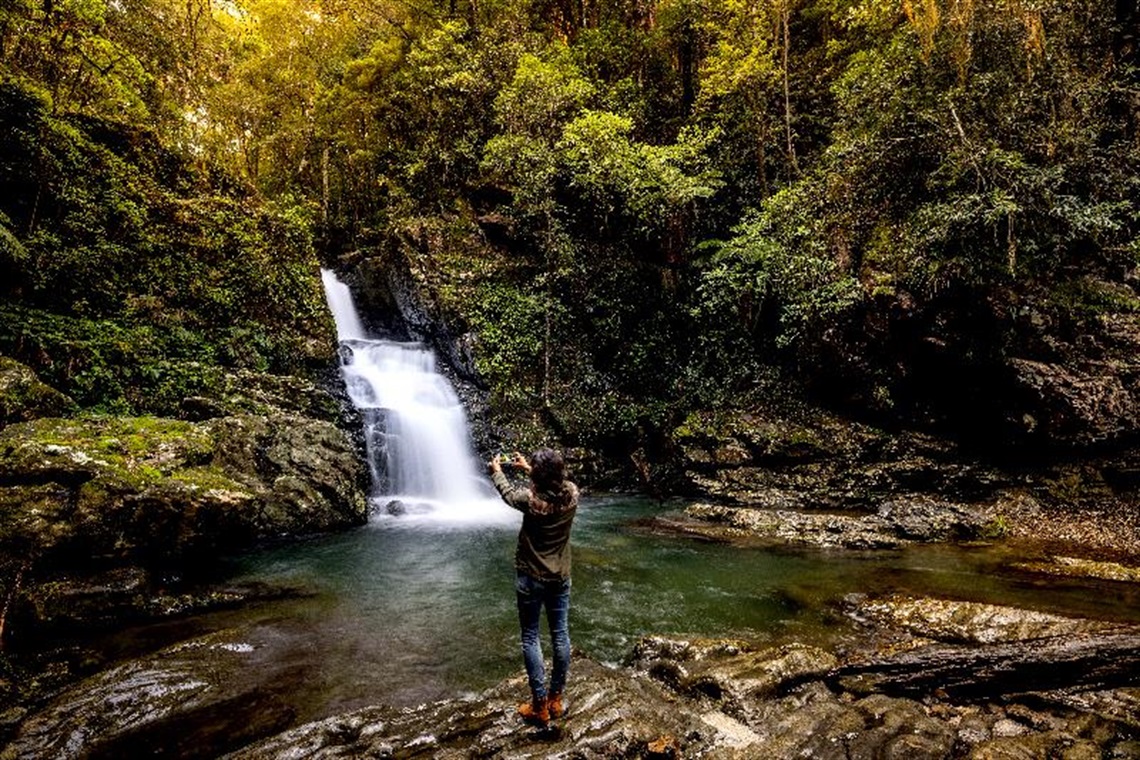
Sustainable Tourism
Preserving the unique natural environment, community and culture of the Bellingen Shire is a priority. As a community, we recognise the potential impacts of over tourism.
Together we need to find the right balance of economic yield and visitor numbers, with a responsibility to manage tourism in a sustainable and responsible way.
Eco Destination Accreditation is a real step toward addressing these wishes and concerns of our community.
What does it mean to apply for ECO Destination Certification?
Bellingen Shire is working towards becoming an internationally recognised, certified ECO Destination with Ecotourism Australia. But what does it mean to become an ECO Destination?
It means we are reviewing and refining our destination management practices to meet international standards for long-term sustainability. We want to ensure that we nurture our unique natural assets and attract responsible travellers that will respect our natural environment, community and Indigenous culture for future generations.
We are becoming a certified ECO Destination to:
- make sure visitors have access to high-quality ecotourism
- Attract visitors that have the same shared values
- champion our community’s achievements
- foster respect and uphold cultural authenticity for the oldest continuous living culture in the world.
Why is Bellingen Shire applying for Eco Destination Certification?
People of the Bellingen Shire recognise the importance of ensuring the future of our natural assets, community and culture.
While developing a recent branding strategy, extensive community engagement found overwhelming support of the following three themes:
- Celebration and protection of our unique natural environment
- Respect and acknowledgment for Gumbaynggirr culture and support for a voice for the traditional custodians of this land
- Preservation and recognition of our unique, diverse community and culture
Engagement found the key concern for the local tourism industry and community is over-tourism. Not just how it can adversely affect the environment, but also local culture and physical infrastructure.
How is the Destination Certification being funded?
Bellingen Shire were one of 6 destinations invited to apply for sponsorship to help them gain Eco Tourism Accreditation. This offer came through a partnership arrangement between the World Wildlife Fund and Eco Tourism Australia. With the sponsorship package valued at $30,000 to help the destination work toward achieving certification, Bellingen Shire were invited because we:
- Have been bushfire impacted or are susceptible to bushfire
- Have a strong existing profile as a nature-based tourism destination
- Have protected areas and other land which is managed for the primary purpose to maintain and foster thriving natural and cultural values
- Already have high standard ecotourism products and/or potential to grow the ecotourism product offering in the region easily
Bellingen Shire was one of three destinations across Australia to be successful for the funding.
Who is leading the Eco Certification process?
Certification is for a destination with a clearly defined boundary. Council is the lead partner and responsible for the management of the certification. However, we can’t do it alone. The entire region’s tourism destination management practices are assessed Shire-wide.
Certification is about the destination. It is not given to local governments or councils.
While the Council will drive the process, ultimately the success of the certification process lies in businesses, community and landowners getting involved.
Ecotourism Australia (EA), established in 1991, is a not for profit, membership-based organisation inspiring environmentally sustainable and culturally responsible tourism.
Internationally recognised through the Global Sustainable Tourism Council, EA designs and delivers certification programs for tourism products and destinations. Certification assures travellers that they are backed by a strong commitment to sustainability and quality.
Currently representing more than 500 responsible ecotourism operators, 1,700 products and a growing number of destinations, Ecotourism Australia also represents the interests of ecotourism operators and destinations including:
- operators
- protected area managers
- state/federal government agencies
- local/regional tourism associations
- consultants, planners, academics, students
- travellers
They do this through:
- membership on advisory boards
- reference groups and industry bodies
- working with diverse industry stakeholders to implement and reward sustainable tourism practices.